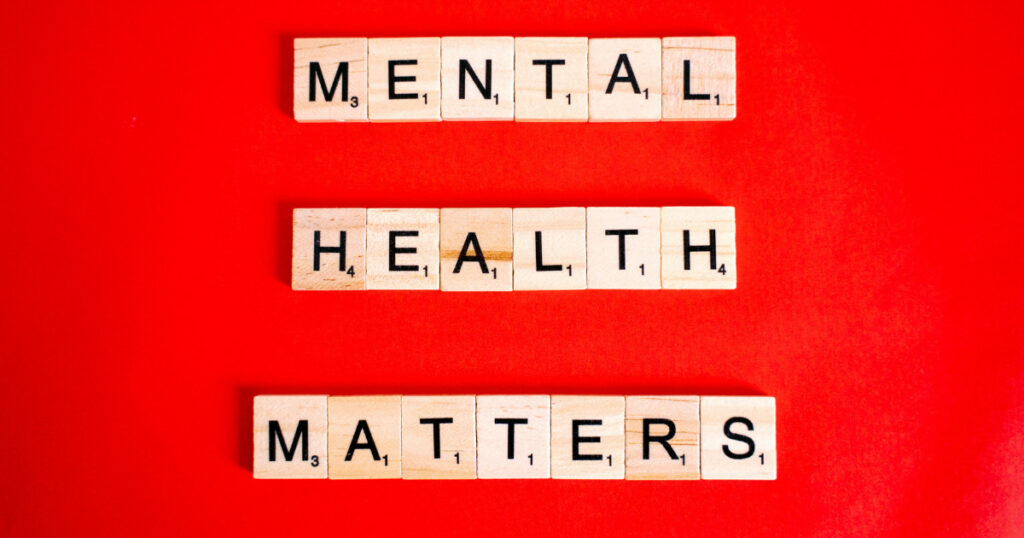We’ll send you our company updates and latest news. Subscribe for free by completing the form below.
Mental Health Awareness Week 2023: Top Tips for Taking Care of Your Mental Health

It’s Mental Health Awareness Week 2023, a focus week that happens every year to raise awareness about the importance of taking care of our own mental health. As many of us know, taking care of our mental health is essential for our overall well-being, and young people are no exception to this. With the increasing stressors and demands of modern life, from academic to social pressures, in making future plans to worrying about your weekly schedule, it’s now more important than ever for you to take better care of your mental health. And while it may at first seem unimportant, taking care of your mental health will only improve how you interact with the world, your academic performance and your relationships.
In this blog, we’ll share ten top tips on how you can better take care of your mental health for Mental Health Awareness Week 2023.
1.Practice self-care

Self-care is essential for mental well-being, and it involves taking care of your body, mind, and emotions. Some self-care practices include getting enough sleep, eating a healthy diet, exercising regularly, and doing things that you enjoy. Think about your basic needs – nutrition, hydration, rest, exercise, hygiene and play – how can you carve out more time for these needs every day?
2. Connect with others

Connecting with others is a vital part of maintaining good mental health. It’s important to have supportive relationships with friends, family, or peers. Talking to someone when you’re feeling down can help you feel better and give you the support you need. Don’t be afraid to reach out to others when you’re feeling low.
3. Avoid the toxic

Avoid anything that’s toxic. This might involve spending less time with people who criticize, blame and shame others, or steering clear of social feeds that encourage negative ways of thinking about ourselves and others. Try to surround yourself with things that bring you joy, positivity and happiness. Eat foods that energize you, watch TV or listen to podcasts that enrich your life and keep well clear of anything that brings you negative energy.
4. Take breaks

Taking breaks is essential for mental health, and it’s important to take time for yourself to relax and recharge. Whether it’s a short break during the day or a weekend getaway, taking breaks can help you feel refreshed and energized.
5. Manage stress

Stress is a common cause of mental health problems, and it’s important to manage it effectively. Some stress-management techniques include deep breathing practices, meditation, or exercise. Try listening to your favourite music and dancing it out whenever you feel stressed.
6. Seek help

It’s okay to seek help if you’re struggling with your mental health. Talk to a trusted friend, teacher or family member if you’re struggling. Remember that you’re not alone.
7. Set boundaries

Setting boundaries can help you maintain good mental health by reducing stress and avoiding burnout. It’s important to say no to things that are not essential or that you don’t have time for, and to prioritize your mental wellbeing.
8. Practice mindfulness

Mindfulness involves being present in the moment and paying attention to your thoughts, feelings, and surroundings. It’s an effective way to reduce stress and improve mental wellbeing.
9. Get enough sleep

Getting enough sleep is crucial for mental health, as it helps you feel refreshed and energized. Aim for seven to eight hours of sleep each night and establish a bedtime routine to help you wind down before sleep.
10. Focus on positive thinking

Positive thinking can help improve mental health by reducing stress and boosting self-esteem. Try to focus on positive thoughts and reframe negative thoughts into more positive ones.

In conclusion, taking care of your mental health is essential for your overall well-being. By practising self-care, connecting with others, avoiding toxic people or habits, taking breaks, managing stress, seeking help if needed, setting boundaries, practising mindfulness, getting enough sleep, and focusing on positive thinking, you can better take care of your mental health. Remember, it’s okay to seek help if you’re struggling, and there are many resources available to support you.







